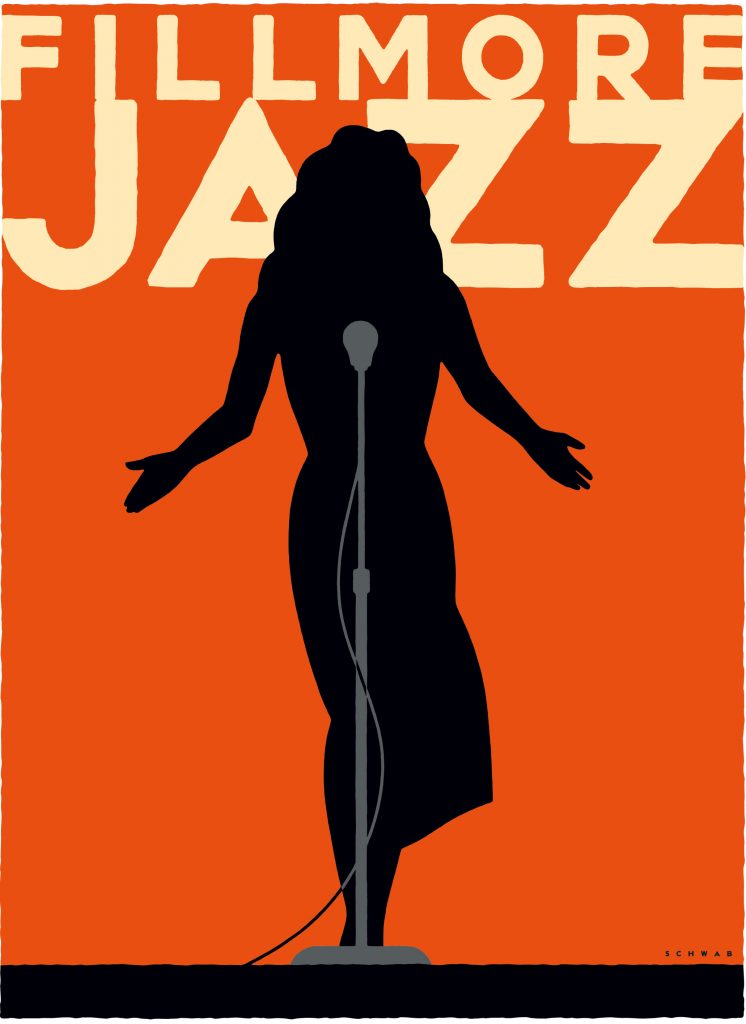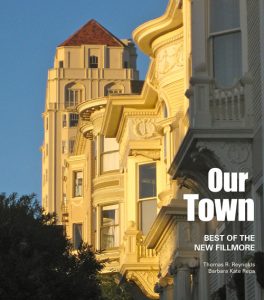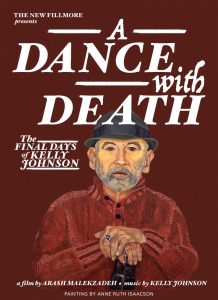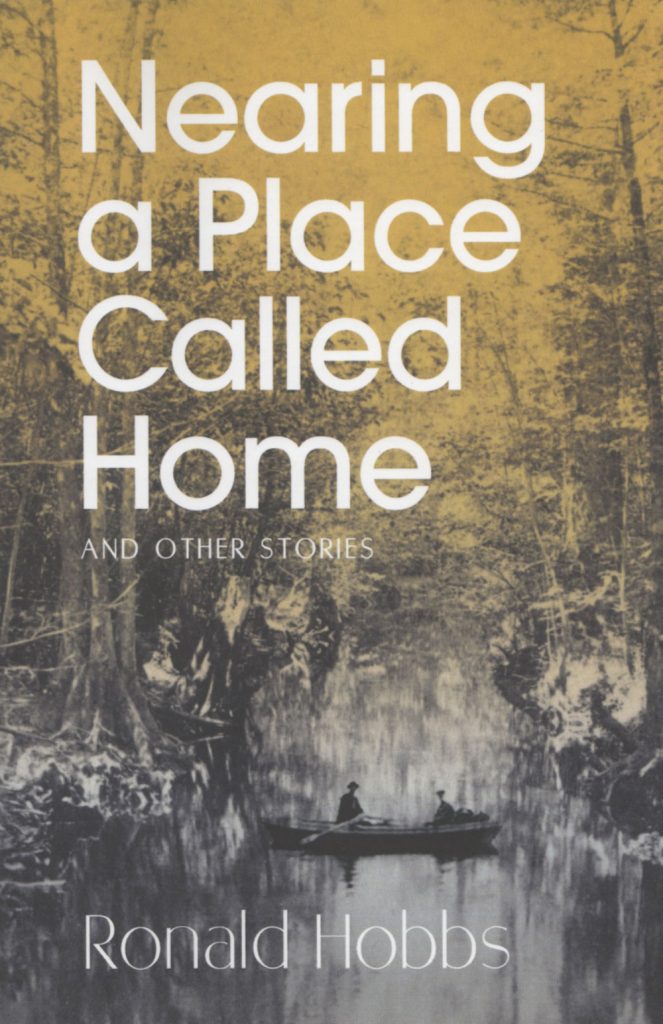
BOOKS | MARK J. MITCHELL
“I never intended to write a book,” Ronald Hobbs said as we basked in the warm February sun in Santino’s Vino’s parklet at Fillmore and California. “Who does that these days?”
“Well, you did,” I nudged, tapping my copy of his new book, Nearing a Place Called Home. “A pretty good one, too. How did this accident happen?”
“My editor and I — Isaiah Dufour, a very talented young man, from the Mission, a playwright.”
Conversations tend to snake around with Ron.
“We were sitting on my back porch, enjoying something red from Napa, and he knew about the little stories I’d been writing. He sort of talked me into it.”
Ronald Hobbs has been living in the Fillmore since before it was new. He arrived here in September 1970 and stayed, with many an absence, abscondage and return.
He spent some early days working in the back rooms of the legendary Minnie’s Can-Do Club, and also read poetry from time to time in the front. He worked at nearby Connie’s West Indian restaurant, too, and remembers Rev. Jim Jones handing Connie a big check after taking over her place one night. For a long time, he was a partner in Spectrum Imports, a shop near Fillmore and Pine that specialized in exotic birds. He’s always been thought of as the poet of our part of Fillmore, and he brings his poet’s eye and ear to this book of prose.
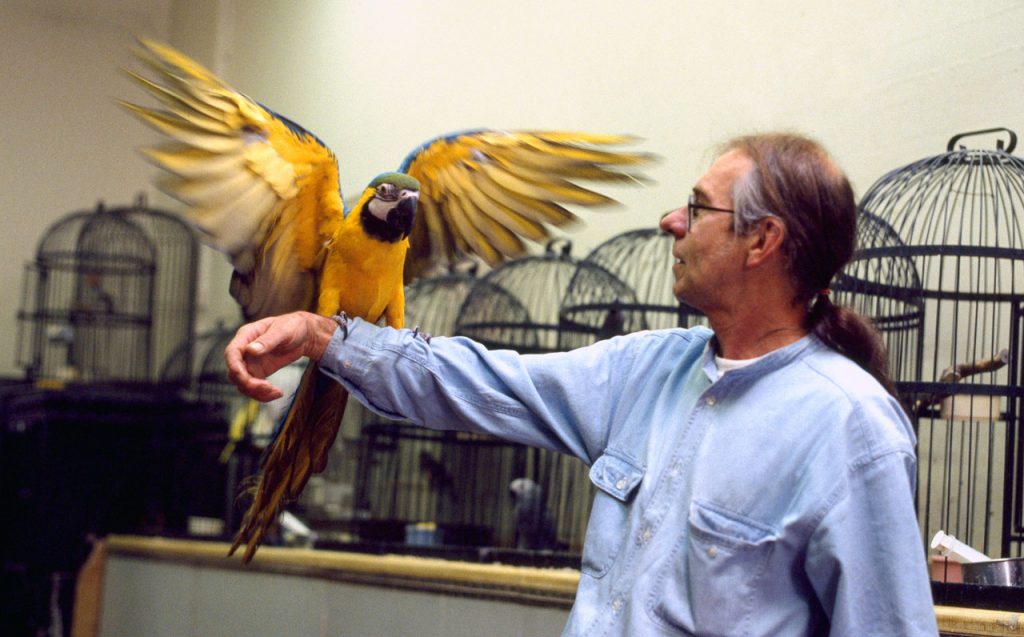
“The stories seem autobiographical,” I suggested, as he sipped at his beer.
“Well, they are,” he replied, “but they’re stories. You know.”
Nearing a Place Called Home is a collection of stories, most very short (the longest one is 11 pages). They take you from the Louisiana bayou to Mexico, Japan and San Francisco. They feel autobiographical because Ron writes so well, and every event feels truly witnessed.
We talked about some of the stories in the book, as he asked which ones I liked. I mentioned “When Russell Tracy Sang Butler Yeats” because I knew he was drawn to the musical settings of that poem. The story tells me why. His eyes lit up as he remembered the astonishing voice he’d heard as a young boy when another boy sang Yeats’s words. “It was like being in church, but better,” Ron said. “And it was Ireland, and I’d never heard Ireland before.”
Most of the brief pieces offer a quick epiphany, but they paint distinct pictures. The endings always seem to leave just a little more mystery for a reader to savor or solve. The era in which many of the stories take place is long enough ago that it feels like another country, but still recognizable.
I started to suggest he had a nostalgia for lost times, then caught myself. It’s not nostalgia, but affection, and the affection is for the people, the characters.
He agreed with that description. In the pages of the book, you meet many memorable people, most living at the edges of society and the borderlines of the law. He claims the names have been changed and the incidents rearranged into fiction, but acknowledges that some version of these people did exist.
These stories feel autobiographical because Ronald Hobbs writes so well, and every event feels truly witnessed. He brings his poet’s eye and ear to this book of prose.
Ron’s personal favorite is the one called “Suzonka.” “She was a real person,” he told me, “the wife a friend. She was a beautiful woman, almost to the point of gaudiness.” He paused, remembering. “But there’s always a Suzonka somewhere. Right now, there’s probably a young man sitting in a club in North Beach watching her dance.”
We talked about the neighborhood, which we’ve both called home for decades, dropping some names of those no longer with us. I was happy to see that he’d included a local bass player in a scene in one of the stories, just in passing. Only longtime Fillmore residents would catch it. “Well, you write about what you’ve seen, don’t you?” Ron proposed.
His first love is poetry, and it’s also mine. We both share a vocation for the play of words. His must-have, desert-island anthology is Modern Poetry, edited by Oscar Williams — the 1947 edition. I have the later expanded version. The great sadness in his life is that he feels he’s failed at what he loves.
“Every day I get up and I try to write poetry, but what comes out is crap,” he says. That’s his opinion. All writers dance their own dance with the muse, but I’ve always liked Ron’s poems. If you can find a copy of Songs for Fillmore Street or Beadstringer, you should snap it up and pass it around.
Cheers were coming from the Super Bowl crowds inside Santino’s and the other bars along Fillmore Street. I slid my copy of Nearing a Place Called Home across the table for his autograph. The sun was going down at the end of California Street. I helped Ron up and walked him slowly across the street to the place he now calls home.
Mark J. Mitchell is a local poet and novelist. His newest book, Something to Be, is due out shortly from Pski’s Porch Publishing.
MORE: Five Fillmore stories by Ronald Hobbs
UPDATE: Ronald Hobbs died soon after his book was published in 2022. His son Django Runyan posted on May 26, 2022: “After a long battle with pulmonary heart disease, my father has now passed on. I thought you all should know. My father was a remarkable man. Although a man of meager means he was, to me, an Aristocrat of Being. He brought magic and grandeur to my life and to my brothers, Zack and Sonny. He provided us with a space for those less visible things. He showed us how rich ordinary life can be. He taught me to value the deepest questions above all. We have been very lucky to share his riches while he was here.”
He also left this recording for his sons.


